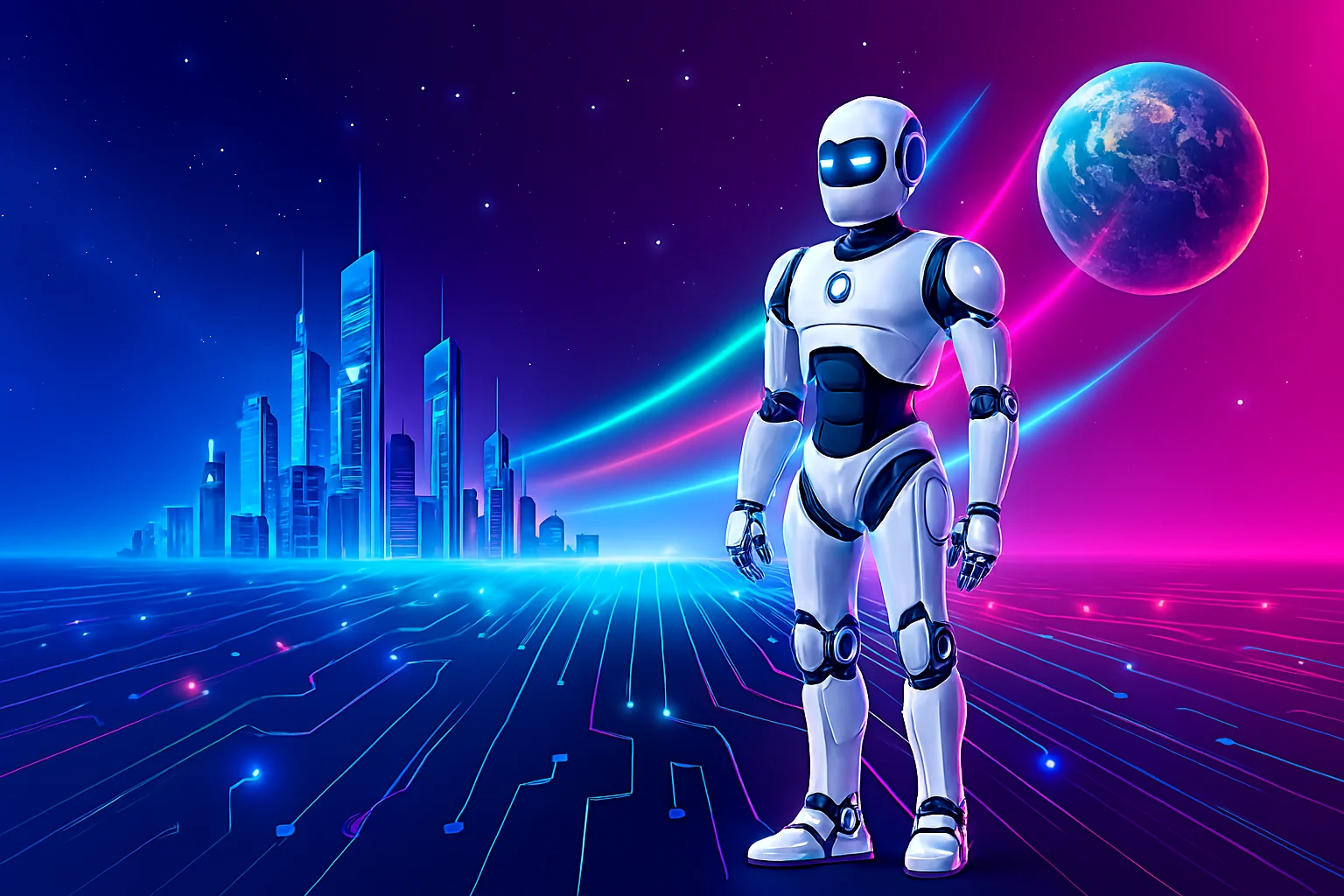
What is AI? Your AI Questions Answered
Estimated Reading Time: 2–3 Minutes
Key Takeaways
- What is AI: Artificial Intelligence (AI) refers to the simulation of human intelligence in machines programmed to think and learn like humans.
- Types of AI: AI can be broadly categorized into Narrow AI, General AI, and Super AI, each with distinct capabilities.
- AI Applications: AI is transforming industries from healthcare to entertainment, offering innovative solutions and enhancing efficiency globally.
What is Artificial Intelligence (AI)?
Artificial Intelligence, or AI, is a rapidly evolving field of computer science focused on creating systems capable of performing tasks that typically require human intelligence. This includes learning, problem-solving, decision-making, and understanding language. AI aims to build machines that can perceive their environment, reason about it, and take actions to achieve specific goals.
At its core, AI involves developing algorithms and models that allow computers to process vast amounts of data, identify patterns, and make predictions or decisions. This can range from simple rule-based systems to complex neural networks that mimic the structure and function of the human brain. The ultimate goal is to create intelligent agents that can operate autonomously and adapt to new situations.
Types of Artificial Intelligence
AI can be classified into three main categories based on their capabilities. Narrow AI, also known as Weak AI, is designed and trained for a specific task. Examples include virtual assistants like Siri or Alexa, image recognition software, and recommendation engines. This is the most common type of AI we encounter today.
General AI, or Strong AI, refers to AI with human-level cognitive abilities. Such AI would be capable of understanding, learning, and applying knowledge across a wide range of tasks, much like a human. While a significant goal in AI research, General AI has not yet been fully realized.
The third category is Super AI, which surpasses human intelligence in virtually every aspect, including creativity, problem-solving, and social skills. This remains a theoretical concept and the subject of much speculation and debate.
Applications of AI Across the Globe
The impact of AI is profound and widespread, revolutionizing numerous sectors worldwide. In healthcare, AI is used for diagnosing diseases, developing personalized treatment plans, and accelerating drug discovery. Finance benefits from AI in fraud detection, algorithmic trading, and customer service through chatbots.
The transportation industry is seeing AI drive advancements in autonomous vehicles, traffic management, and logistics optimization. Entertainment uses AI for content recommendation, personalized experiences, and even generating creative works. In education, AI can offer personalized learning paths and automate administrative tasks.
Businesses globally are leveraging AI to improve customer experiences, automate processes, and gain competitive advantages. From optimizing supply chains to enhancing cybersecurity, AI is becoming an indispensable tool for innovation and efficiency. For more insights into technological advancements and news, visit newsog.in.
Conclusion
Artificial Intelligence is a transformative technology that mimics human cognitive functions to solve complex problems and enhance efficiency across diverse fields. Its continuous development promises even more groundbreaking applications in the future.
